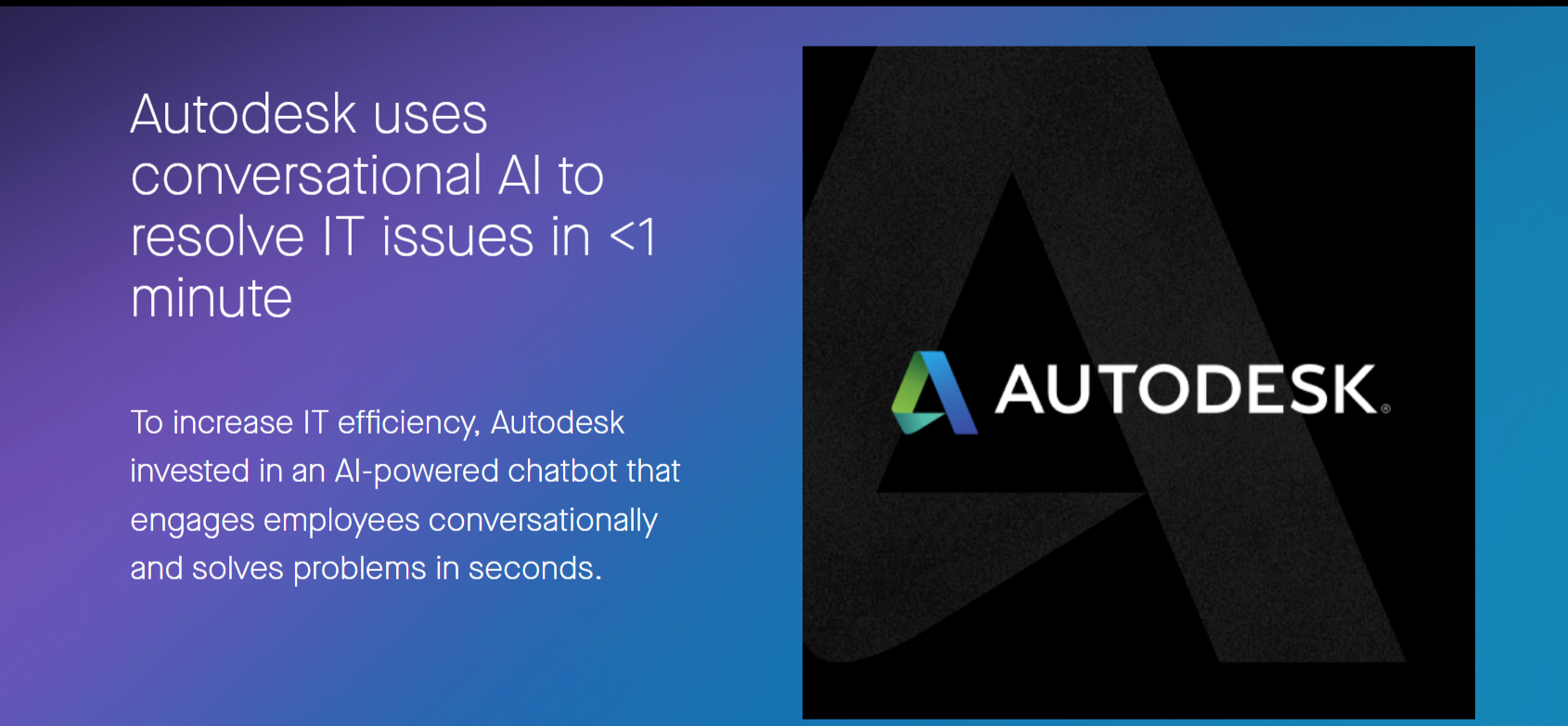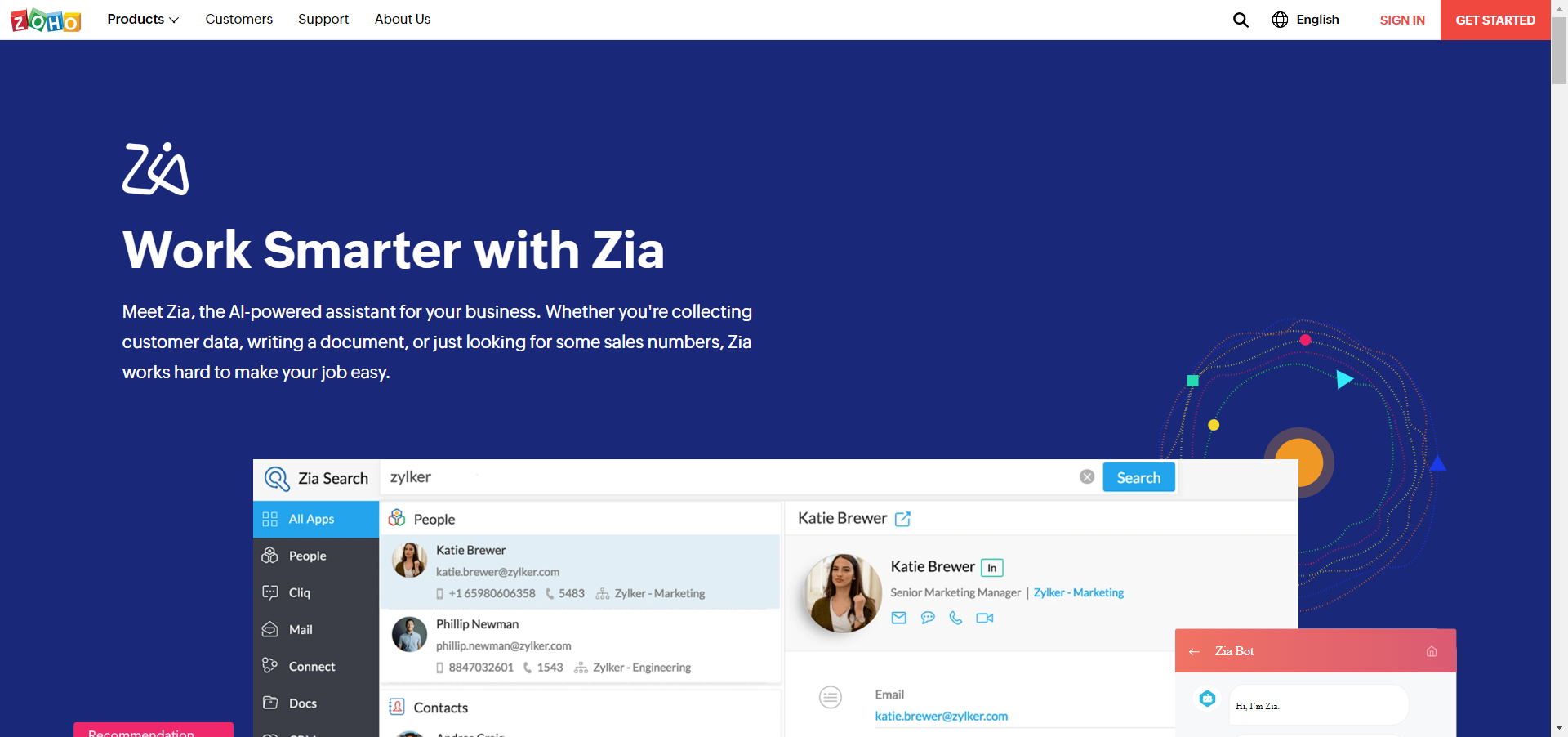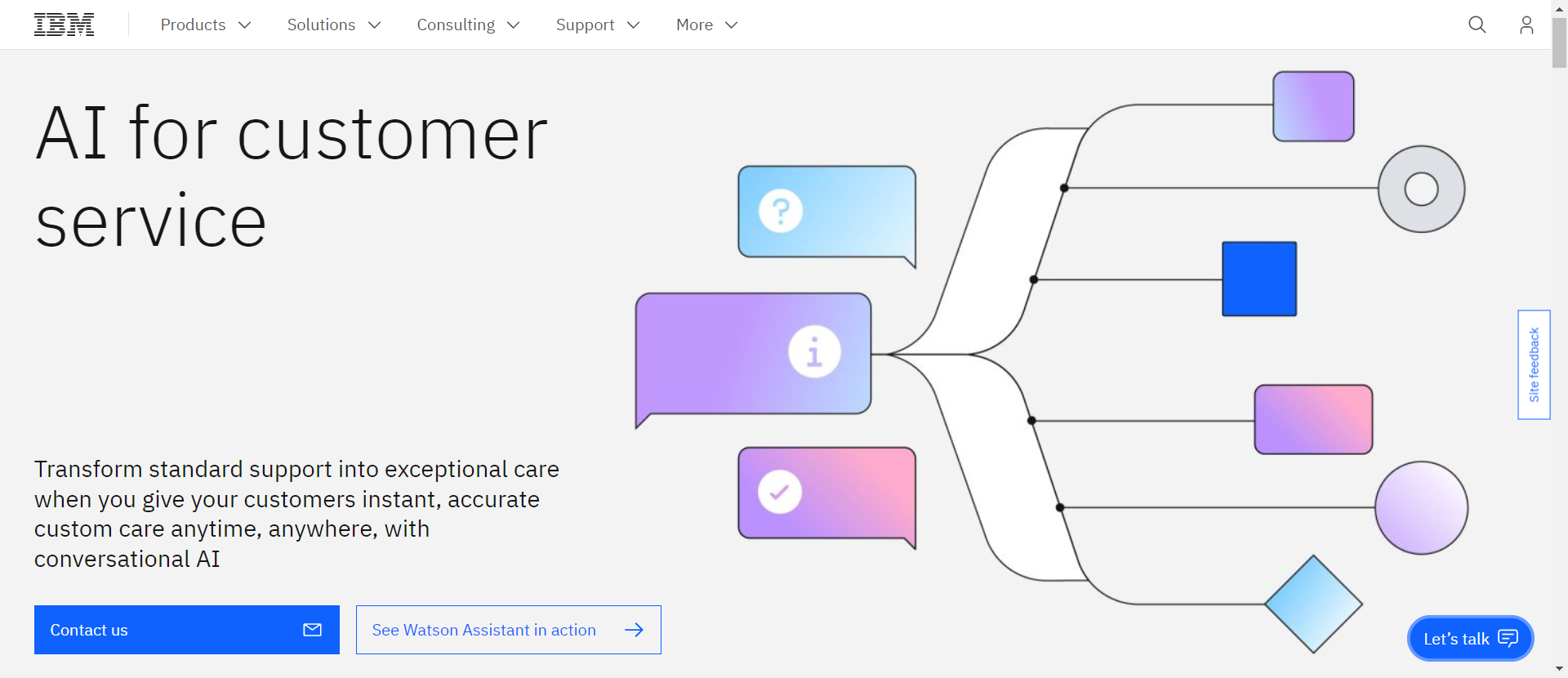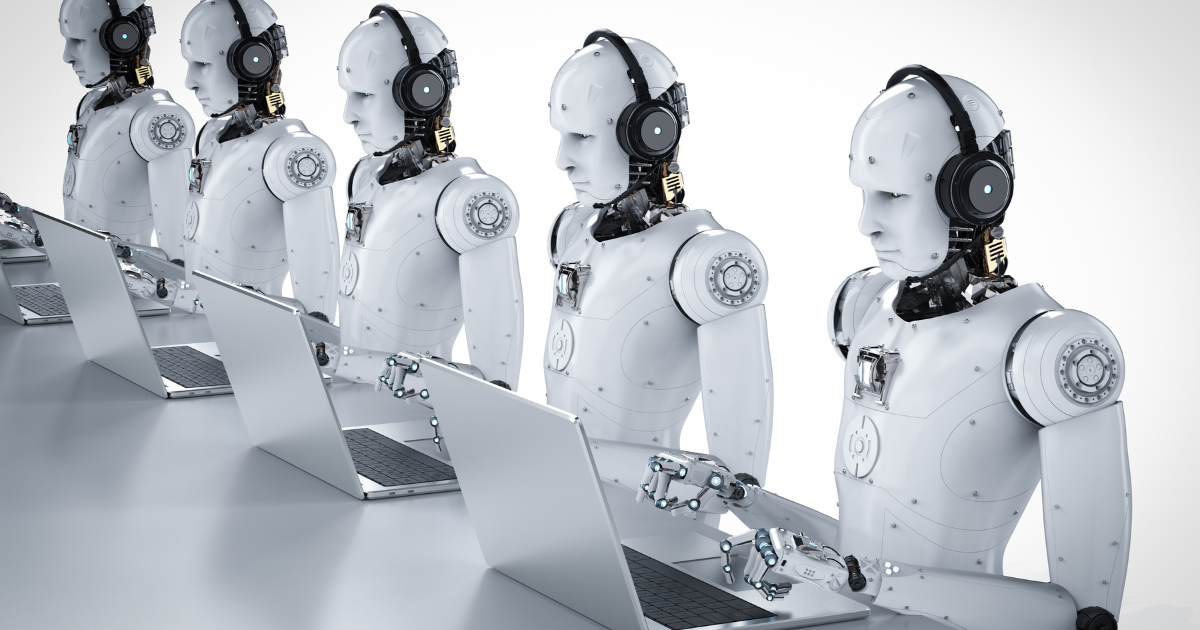What IS a helpdesk?
A lot of fancy words get thrown around to explain the role of a helpdesk but at its core what is its purpose?
Well to put simply, it’s a facilitator. It stands at the gap between businesses and their customers and helps gel the two entities so that harmony can be reached instead of friction.
Welcome to the exciting world of helpdesk support!
It is a certainty at this point that helpdesk software has changed the world of customer service for better. 86% of companies consider helpdesk software to be more productive for them in providing customer service.
As companies strive to meet customers' ever-increasing demands, the role of helpdesk software has become crucial.
But what if we told you there's a way to improve this process? Reach further, unlock greater levels. A proposal to make both support agents and customers drool in anticipation. 😂
Enter AI-powered helpdesk software!
In this article, we'll introduce you to the world of AI in the helpdesk software industry.
We'll examine what AI is, its use in the industry, and the future.
We'll also examine the benefits of AI-powered helpdesk software and some of the limitations and challenges that come with it.
But first, let's define what we mean by AI. Artificial Intelligence, or AI for short, is a term used to describe a computer system that can perform tasks that would typically require human intelligence, such as recognizing speech or making decisions.
While AI has been around for decades, recent technological advancements have made it more powerful and accessible than ever before.
So, if you're ready to learn more about how AI is transforming the helpdesk software industry, let's dive in!
What is AI?
Definition of AI
AI, or Artificial Intelligence, refers to the ability of machines to learn and perform tasks that typically require human intelligence. This includes things like natural language processing, problem-solving, and decision-making.
Types of AI
There are 4 types of AI in general:
Reactive AI: Reactive AI systems are designed to react to a specific situation based on pre-programmed rules and data. They do not have the ability to learn or make decisions beyond what they have been specifically programmed to do. Reactive AI is used in applications such as robotics, autonomous vehicles, and gaming.
Theory of Mind AI: Theory of mind AI systems are designed to understand the mental states of other entities, such as humans or animals. They are able to recognize emotions, beliefs, intentions, and desires, and use this information to make predictions about the behavior of others. Theory of mind AI is used in applications such as social robotics, virtual assistants, and educational software.
Limited Memory AI: Limited memory AI systems are designed to use past experiences to inform current decisions. They are able to learn and improve over time, but their memory is limited to a specific range of data. Limited memory AI is used in applications such as recommendation systems, fraud detection, and predictive analytics.
Self-Aware AI: Self-aware AI systems are designed to have a sense of self, similar to humans. They are able to understand their own existence and the existence of other entities, and are capable of introspection and self-improvement. Self-aware AI is still a theoretical concept and has not yet been developed in practice.
Limited Memory AI sees the most prevalent use when it comes to implementation in the helpdesk industry because the goal is to train systems using behavioral information of customers and agents alike to improve all aspects of customer service.
Importance of AI in the helpdesk software industry
AI is becoming increasingly important in the helpdesk software industry as companies seek to provide faster and more efficient customer support.
7 out of 10 companies that have revenue of over $100 million annually are spending $1 million or more on AI initiatives.
With the help of AI, companies can automate routine tasks, provide personalized support, and improve the overall customer experience.
AI-powered chatbots, for example, can handle basic customer inquiries and support tickets, freeing up human support staff to focus on more complex issues.
AI chatbots have seen substantial investment in recent years.23% of customer service companies are currently using AI chatbots and global chatbot marketing revenue reached $83.4 million for 2021.
AI can also analyze customer data to identify patterns and trends, allowing companies to address issues before they become problems proactively.
In addition, AI can help companies reduce costs and improve efficiency. By automating tasks and streamlining workflows, companies can save time and money while providing better customer support.
So no matter how you hack it when it comes to mass AI insemination in the customer service industry, It's not a question of will but rather when?
AI in the Helpdesk Software Industry
Overview of the Helpdesk Software Industry
Helpdesk software is a critical component of customer support operations for many businesses. It enables customer support teams to efficiently manage and resolve customer inquiries, complaints, and issues.
As customer demands continue to increase, the helpdesk software industry has been seeking ways to improve its processes and cut down on support time. One solution is through the application of Artificial Intelligence (AI).
Application of AI in the Helpdesk Software Industry
AI has various applications in the helpdesk software industry. To discuss a few...
Chatbots

Live chat is one of the fastest growing facets of customer service. Preprogrammed chatbots are regularly used in live chat by various businesses.
AI-powered chatbots are one of the most common applications of AI in the helpdesk software industry.
Chatbots use natural language processing and machine learning algorithms to understand customer inquiries and provide automated responses.
This can reduce the human support staff workload and provide faster customer response times.
AI-trained chatbots have become so adept at natural human language processing and human communication that chatbots handle full conversations around 69% of the time
Sentiment Analysis

AI-based sentiment analysis is a technique used to determine the emotional tone of a piece of text, such as a tweet, review, or news article.
It involves using natural language processing (NLP) and machine learning algorithms to analyze and categorize the text based on the writer's sentiment, whether it's positive, negative, or neutral.
The analysis can be done on a sentence-by-sentence basis or at the document level, and it can help businesses, organizations, and individuals to gauge public opinion, monitor brand reputation, and make informed decisions based on customer feedback.
Automated Ticket Routing

Automated ticket routing is using AI to route customer support tickets to the appropriate support staff based on the ticket content and specific agent support history data.
This can help improve response times and ensure the most qualified support staff handles tickets.
This can also help critical tickets be directly routed to more experienced support agents, eliminating the need to reroute if the initial ticket gets assigned to a less experienced agent.
Predictive Analytics

Predictive analytics involves using AI to analyze customer data and identify patterns and trends. This can help companies anticipate customer needs and provide proactive support.
For example, suppose a company notices customers frequently ask for help with a specific feature.
In that case, they can proactively provide resources and support to address the issue before it becomes a major problem.
Voice Recognition

AI-based voice recognition is a technology that uses artificial intelligence algorithms to identify and interpret human speech.
It involves processing audio signals and converting them into text or commands that can be understood by machines. The technology uses machine learning techniques to improve accuracy and performance over time, by training the algorithm on large datasets of human speech.
AI-based voice recognition has become increasingly popular in recent years and is used in a wide range of applications, such as virtual assistants, speech-to-text transcription, and voice-controlled devices.
Virtual Assistants

Virtual assistants use AI to provide personalized support to customers.
It is estimated that by 2025, 50% of knowledge workers will utilize a virtual assistant every day, a significant increase from the mere 2% who used it in 2019.
Virtual assistants can provide tailored recommendations and support by understanding customer preferences and history.
This can improve the overall customer experience and reduce the workload on human support staff.
Benefits of AI in the Helpdesk Software Industry
The application of AI in the helpdesk software industry offers numerous benefits, including:
Improved efficiency: AI-powered chatbots, automated ticket routing, and virtual assistants can help reduce the workload on human support staff and provide faster response times to customers.
Cost reduction: Automating tasks and streamlining workflows can help companies save time and money.
Better customer experience: AI can help personalize customer support interactions, anticipate customer needs, and provide proactive support, all leading to a better customer experience.
Improved data analysis: AI can analyze customer data and identify patterns and trends, allowing companies to make data-driven decisions to improve their overall customer support operations.
AI-Powered Helpdesk Software
Characteristics of AI-powered Helpdesk Software
AI-powered helpdesk software differs from traditional helpdesk software in several ways, including:
- Intelligent automation: AI-powered helpdesk software can automate routine tasks and workflows, reducing the workload on human support staff.
- Natural language processing: AI-powered helpdesk software can understand and interpret human language, allowing for more natural and conversational interactions between customers and support staff.
- Machine learning: AI-powered helpdesk software can learn and improve over time, becoming more efficient and effective at handling customer inquiries.
Functions of AI-powered Helpdesk Software
AI-powered helpdesk software can perform various functions, including:
- Customer support ticket management: AI can automatically route support tickets to the most appropriate support staff and provide automated responses to basic inquiries.
- Sentiment analysis: AI can analyze customer feedback and determine its sentiment, allowing support staff to address customer pain points more effectively.
- Personalization: AI can analyze customer data and provide personalized recommendations and support to improve customer experience.
- Voice-enabled support: AI-powered voice recognition technology can provide support through voice-enabled interfaces or transcribe customer support calls for later analysis.
Benefits of AI-powered Helpdesk Software
The benefits of AI-powered helpdesk software include the following:
- Improved efficiency: AI can automate routine tasks, allowing human support staff to focus on more complex issues and improving response times.
- Cost reduction: Automating tasks and workflows can help companies save time and money.
- Enhanced customer experience: AI can provide personalized support and anticipate customer needs, improving overall customer experience.
- Improved data analysis: AI can analyze customer data and identify patterns and trends, allowing companies to make data-driven decisions to improve their overall customer support operations.
AI and Customer Experience
Importance of Customer Experience in the Helpdesk Software Industry
In today's highly competitive market, customer experience has become a key differentiator for businesses.
Companies that provide exceptional customer support can build customer loyalty and improve customer retention.
In the helpdesk software industry, customer experience is critical, as customers rely on support staff to resolve issues and provide solutions quickly and efficiently.
How AI Improves Customer Experience
AI-powered helpdesk software can improve customer experience in several ways, including:
- Faster Response Times: 46% of customers expect a response from companies within 4 hours. AI-powered software can automatically route support tickets to the most appropriate support staff, cutting down response times and reducing customer wait times.
- Personalization: AI can personalize customer service by analyzing data to provide tailored recommendations, using chatbots to understand customer inquiries, and automating routine tasks.
- Predictive Support: AI can anticipate customer needs and provide proactive support, reducing the number of support tickets and improving customer satisfaction. This can also lead to higher volume of repeat business.
- 24/7 Availability: A support team that operates 24/7 is more capable of promptly addressing support inquiries compared to a team that is only accessible during regular business hours from 9-to-5. AI-powered chatbots can provide support around the clock, ensuring customers can receive help at any time.
Case Studies of AI-powered Customer Experience in the Helpdesk Software Industry
Several companies in the helpdesk software industry have successfully implemented AI-powered customer experience solutions. Here are a few examples:

Autodesk implemented an AI-powered chatbot that can answer basic customer inquiries and escalate complex issues to human support staff. The chatbot has improved response times and reduced wait times for customers.

Zoho's AI-powered support solution, Zia, can analyze customer data and provide personalized recommendations and support. Zia has improved customer satisfaction and reduced support tickets for Zoho.

IBM implemented an AI-powered support solution that can provide 24/7 support to customers. The solution has reduced response times and improved customer satisfaction for IBM's clients.
AI-powered helpdesk software can improve customer experience by providing faster, more personalized support and anticipating customer needs. As more companies adopt AI-powered solutions, we can expect to see further improvements in the customer experience in the helpdesk software industry.
Limitations of AI in the Helpdesk Software Industry
While AI-powered helpdesk software has numerous benefits, there are also limitations to its use in the industry. Here are a few key considerations:
Ethical Concerns of AI in the Helpdesk Software Industry
As with any technology, there are ethical concerns surrounding the use of AI in the helpdesk software industry.
One concern is the potential for AI to make biased decisions or perpetuate existing biases. For example, if an AI-powered system is trained on historical data that contains bias, it may inadvertently perpetuate that bias in its decision-making.
It's important for companies to be aware of these issues and take steps to mitigate them, such as using diverse datasets to train AI systems.
Impact of AI on Job Security in the Helpdesk Software Industry
Another limitation of AI in the helpdesk software industry is the potential impact on job security.
AI-powered systems can automate many tasks previously performed by human support staff, which may lead to job loss or restructuring.
However, it's important to note that AI can also create new jobs and opportunities, such as roles focused on managing and optimizing AI-powered systems.
Over-Reliance on AI in the Helpdesk Software Industry
There is a risk of overreliance on AI in the helpdesk software industry.
While AI-powered systems can improve response times and efficiency, they may only sometimes provide customers with the best solutions or support.
It's essential for companies to balance the use of AI with human support staff to ensure that customers receive the best possible support.
Overall, while AI has limitations in the helpdesk software industry, these concerns can be addressed through ethical considerations, proactive planning for job security, and a balanced approach to using AI and human support staff.
By considering these factors, companies can leverage the benefits of AI-powered helpdesk software while mitigating potential limitations.
Read more: How to Use an SEO Strategy to Improve Customer Experience
Future of AI in the Helpdesk Software Industry
As the use of AI in the helpdesk software industry continues to evolve, there are several emerging trends, challenges, and opportunities to consider.
Emerging Trends in the Use of AI in the Helpdesk Software Industry
One emerging trend in using AI in the helpdesk software industry is the integration of voice assistants and chatbots.
These AI-powered tools can provide immediate assistance to customers and improve response times.
Additionally, natural language processing (NLP) is becoming more sophisticated, allowing AI-powered systems to understand better and respond to customer inquiries.
The rise of Open AIs NLP models such as the DaVinci 3 and it's integration into ChatGPT has already created massive waves in the market.
ChatGPT is one the fastest growing products currently in the tech space. In its first week OpenAI servers saw an unprecedented 1 million users.
Challenges and Opportunities of AI in the Helpdesk Software Industry
One challenge in using AI in the helpdesk software industry is the need for ongoing training and development of AI systems.
As customer needs and inquiries evolve, AI systems must be able to adapt and improve. However, this also presents an opportunity for companies to improve their customer support through AI continually.
Even though NLP models just like any other AI learning model, are limited by the data set its provided it is estimated that datasets are going to grow exponentially in size and even tho currently most NLP AIs require proper prompting and guidelines through human input to provide acceptable output soon they may be able to learn these prompts and guidelines as well.
There may come a time when you will only need to provide simple prompts for complex queries and the AI will know what to do.
This kind of comprehensive capability can substantially bolster the customer service industry as support times will effectively become trivial. AI will only be limited by processing power at that point.
It's not all daisies and sunshine however because this kind of groundbreaking development can mean customer service jobs may become extinct.
For context, currently, customer service jobs employ 2.88 million people in the states alone.
Future Prospects of AI in the Helpdesk Software Industry
Looking ahead, the future of AI in the helpdesk software industry is promising. Companies can provide more personalized and efficient customer support with continued development and refinement of AI systems.
AI-powered systems can help companies better understand customer needs and preferences, leading to improved product and service offerings.
The future of AI in the helpdesk software industry is marked by both challenges and opportunities.
By staying abreast of emerging trends and investing in ongoing development and training of AI systems, companies can leverage the benefits of AI-powered support to improve customer experiences and drive business success.
Conclusion
In summary, using AI in the helpdesk software industry has significant implications for businesses and customers.
AI-powered systems can improve response times, enhance customer experiences, and help companies better understand customer needs and preferences.
As AI continues to evolve and become more sophisticated, companies must consider the opportunities and challenges of its use.
While AI-powered systems can greatly benefit businesses, they also raise ethical concerns and potential job security implications.
Looking to the future, the helpdesk software industry is likely to continue incorporating AI-powered systems to improve customer support and experiences.
However, companies need to prioritize ongoing development and training of AI systems to ensure they are effectively meeting customers' evolving needs.
In conclusion, incorporating AI in the helpdesk software industry significantly shifts how businesses approach customer support.
By leveraging the benefits of AI-powered systems while addressing the potential challenges, companies can provide more efficient, personalized, and effective support to their customers, ultimately driving success in their industries.

